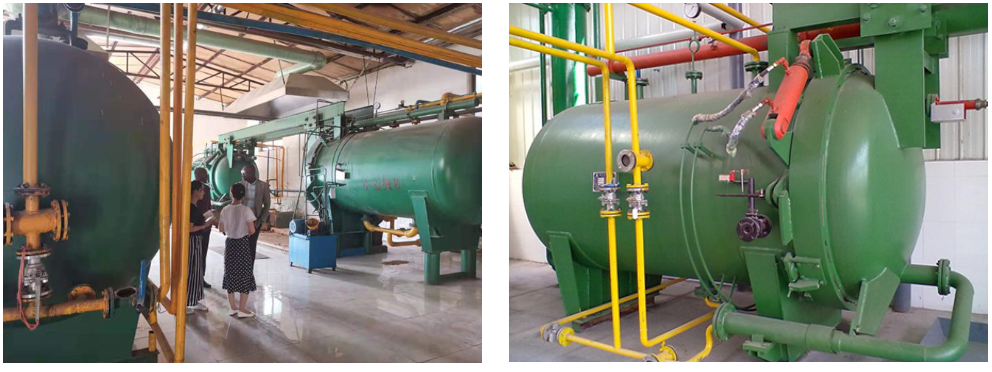Dec . 09, 2024 14:40 Back to list
hemp centrifuge
The Role of Hemp Centrifuge in Cannabis Processing
In recent years, the hemp industry has witnessed exponential growth, driven by a surge in consumer interest in CBD and other hemp derivatives. As this market expands, efficient processing of hemp becomes crucial, especially for businesses looking to maintain quality and meet increasing demand. One of the most significant innovations in this area is the hemp centrifuge, a powerful tool that enhances the efficiency and quality of hemp processing.
What is a Hemp Centrifuge?
A hemp centrifuge is a specialized piece of equipment designed to separate components of hemp biomass through centrifugal force. By utilizing the principles of density and gravity, a centrifuge can effectively isolate various compounds, such as cannabinoids, terpenes, and other valuable materials from the plant's cellular structure. This process is vital for producing high-quality extracts that can be used in a variety of products, including oils, tinctures, edibles, and topical applications.
How Does a Hemp Centrifuge Work?
The operation of a hemp centrifuge is relatively straightforward. Once the raw hemp material is loaded into the centrifuge, it is spun at high speeds. The force generated by this spinning action causes denser materials to move outward, while lighter components remain closer to the center. This separation allows for the efficient extraction of oils and other compounds from the plant matrix.
There are two main types of centrifuges used in hemp processing continuous flow centrifuges and batch centrifuges. Continuous flow centrifuges are designed for larger operations, allowing for a steady stream of material to be processed without interruption. In contrast, batch centrifuges are more suitable for smaller operations or when specific processing is needed for different batches of hemp.
Benefits of Using a Hemp Centrifuge
1. High Efficiency One of the primary advantages of using a hemp centrifuge is its efficiency. The centrifuge can extract a higher yield of valuable compounds compared to traditional methods like pressing or solvent extraction. This means that processors can maximize the use of their raw material, leading to increased profitability.
hemp centrifuge

2. Improved Purity The rapid and effective separation provided by a centrifuge results in extracts that are purer and free from unwanted materials. This is particularly important for consumers who are increasingly demanding high-quality products that are devoid of impurities and contaminants.
3. Versatility Hemp centrifuges are versatile and can be used for various applications beyond just the extraction of CBD. They can assist in separating essential oils, lipids, and other compounds from the hemp plant, enabling manufacturers to diversify their product offerings.
4. Reduced Processing Time Traditional extraction methods can be time-consuming and labor-intensive. In contrast, centrifuges can significantly reduce processing times, allowing companies to scale up their production and respond to consumer demand more swiftly.
5. Environmentally Friendly Many modern centrifuges operate with minimal environmental impact. They often require fewer solvents and produce less waste than other extraction methods, aligning with the sustainability goals of many hemp producers.
Challenges and Considerations
While hemp centrifuges offer numerous benefits, they also present some challenges. The initial investment can be substantial, making it a consideration for smaller operations with limited budgets. Additionally, operators must be trained in the use of this equipment to ensure safety and optimal results.
Moreover, choosing the right centrifuge is vital. Factors such as the type of extraction desired, the scale of operations, and specific product requirements should guide the selection process. Companies must conduct thorough research and potentially consult with experts before making a purchase.
Conclusion
The hemp centrifuge is a groundbreaking tool in the cannabis processing landscape, enabling businesses to extract high-quality cannabis products efficiently and sustainably. As the hemp industry continues to grow, the role of advanced equipment like centrifuges will likely become even more pronounced, shaping the future of hemp processing for years to come. By investing in such technology, hemp producers can not only meet market demands but also contribute to the overall integrity and quality of the hemp products available to consumers.
-
Oil Processing Equipment - High-Efficiency Flaking Machine
NewsJul.25,2025
-
High-Efficiency Peanut Oil Refined Machine for Quality Oil Production Leading Exporters & Companies
NewsJul.08,2025
-
High Efficiency Sunflower Seed Oil Press – Leading Cooking Oil Press Machine Factories & Suppliers
NewsJul.08,2025
-
High-Efficiency Soybean Oil Press Machine – Leading Exporters & Reliable Companies
NewsJul.07,2025
-
High-Efficiency Seed to Oil Extractor – Reliable Extraction Machinery for Your Business
NewsJul.07,2025
-
High-Quality Pressing Screw of Oil Expeller for Efficient Oil Extraction Leading Exporters & Manufacturers
NewsJul.06,2025
